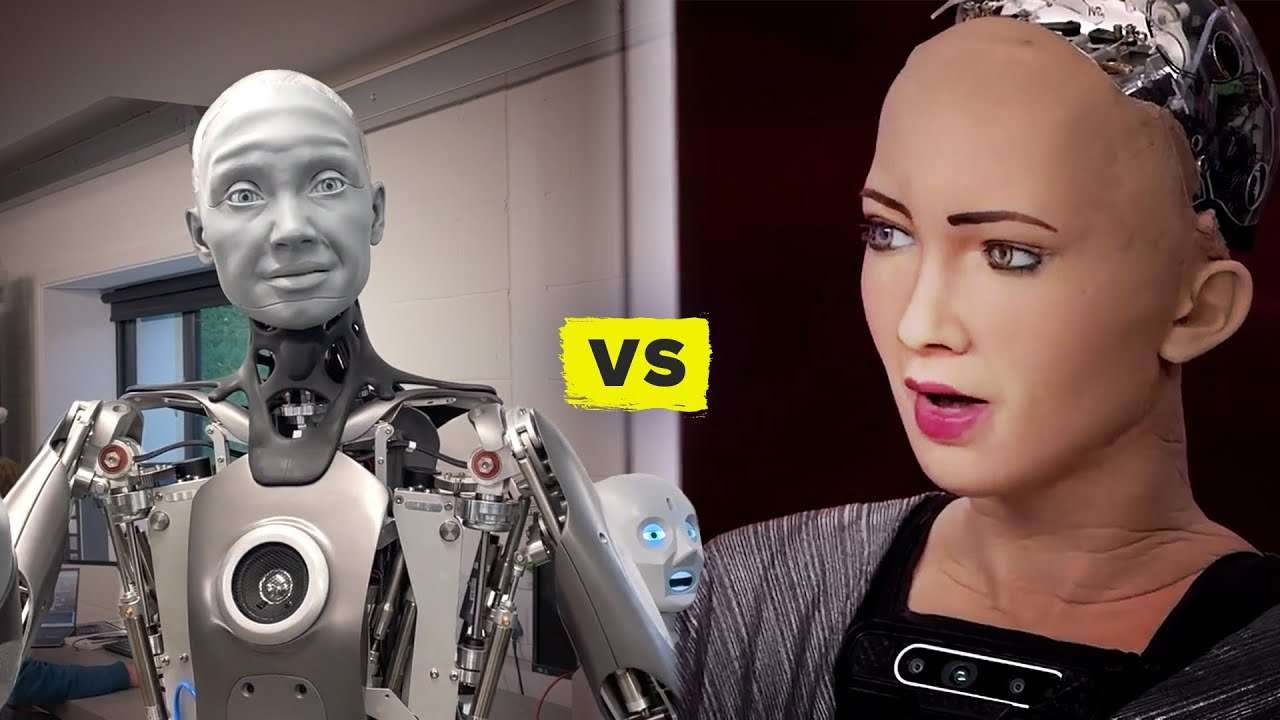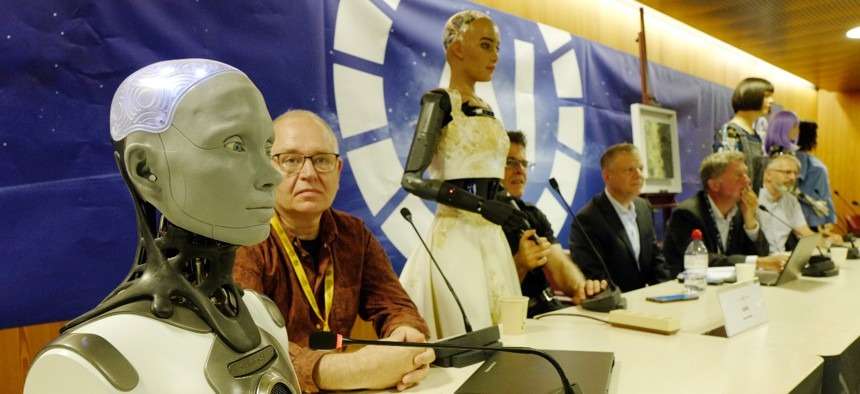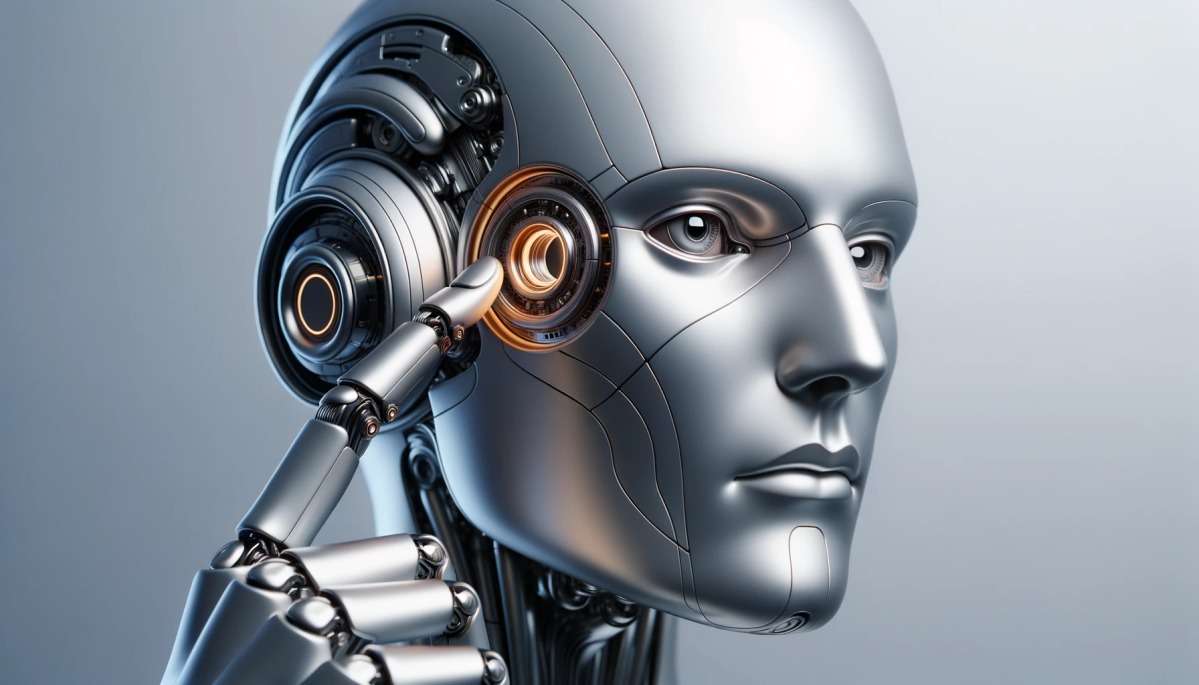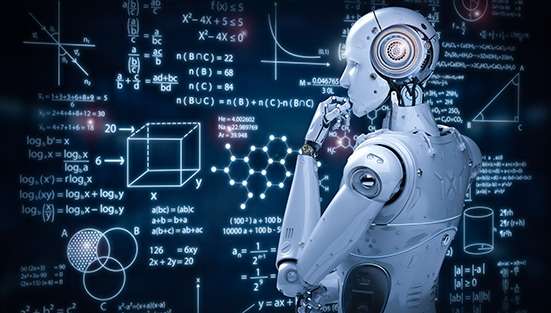Robotics artificial intelligence and cyber security mppsc
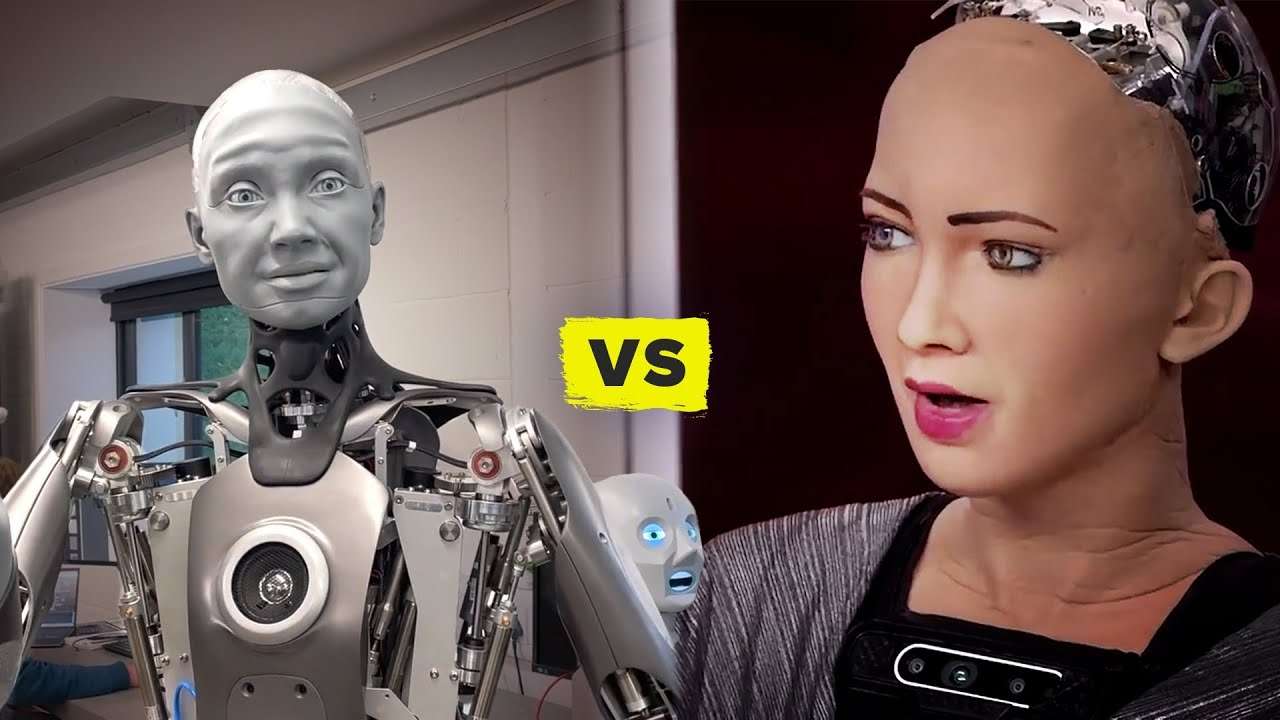
April 07, 2024
Robotics artificial intelligence and cyber security mppsc
"Discover the cutting-edge developments in artificial intelligence and robotics, from machine learning and neural networks to cognitive computing and natural language processing. Enhance your understanding of AI-powered robots and their potential impact on industries, homes, and the world.
Welcome to our blog where we dive into robotics and artificial intelligence. In this post, we will explore the ever-evolving field of AI and how it intersects with robotics. From complex algorithms to advanced technologies, join us as we unravel the capabilities and potential of these futuristic creations. Get ready to discover a world beyond our imagination, where machines can independently think and act. Let's delve into the world of robotics and artificial intelligence together.
The field of robotics and artificial intelligence (AI) has been rapidly advancing in recent years. We are now in a time where robots and AI systems are not just a figment of science fiction, but a reality in our daily lives. From self-driving cars to virtual assistants like Siri and Alexa, AI is making our lives easier and more convenient. But what exactly are these robots and AI systems capable of and how do they work?
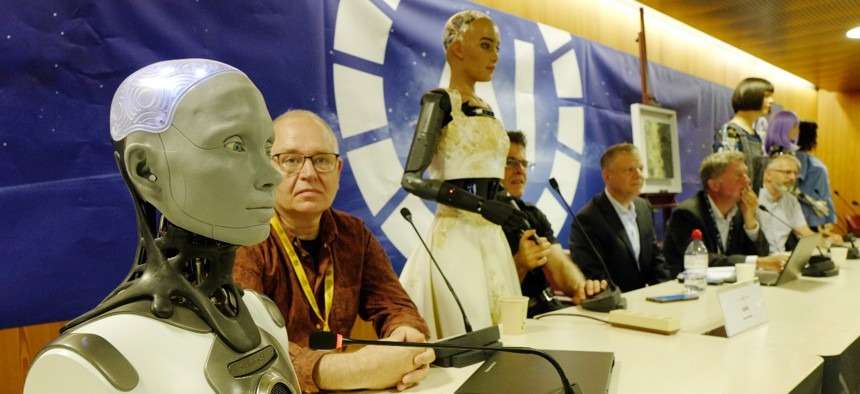
First, let's define what robots and artificial intelligence mean. A robot is a machine that is designed and programmed to perform tasks autonomously or with minimal human intervention. These tasks can range from simple actions like cleaning to more complex tasks like performing surgery. Artificial intelligence, on the other hand, is the ability of a computer or robot to think and learn like a human. This includes learning from past experiences, recognizing patterns, and making decisions based on data rather than being programmed to do a specific task.
So how do robots and AI systems work together? Robots are equipped with sensors, cameras, and other tools to gather data about their surroundings. This data is then sent to an AI system, which uses complex algorithms and neural networks to interpret the information and make decisions. These decisions can be anything from navigating a maze to identifying objects and people.
One of the most significant advancements in robotics and AI is the concept of machine learning. Machine learning is a subset of AI that enables machines to learn from data and improve their performance without explicit programming. This means that robots can adapt and improve their skills based on the data they receive, making them more efficient and accurate over time.
An example of this is the use of AI in self-driving cars. These vehicles use a combination of sensors, cameras, and machine-learning algorithms to navigate and make decisions on the road. As they gather more data from every trip, they become better at predicting and avoiding potential hazards on the road, making them safer for passengers and pedestrians.
Another area where robots and AI systems are making an impact is in healthcare. They are being used to assist doctors in surgeries, diagnose diseases, and even monitor patients' health remotely. These systems can process vast amounts of data and assist in making more accurate diagnoses and treatment plans.
But it's not just in these industries where robots and AI are making a difference. They are also being used in manufacturing, agriculture, and even space exploration. By taking over repetitive and dangerous tasks, robots and AI are freeing up humans to focus on more creative and critical tasks.
However, the advancements in robotics and AI have also raised concerns about the potential impact on jobs. As these technologies become more advanced, many fear that they will replace human workers, leading to unemployment. While it is true that some jobs may be affected, the rise of robots and AI has also created new job opportunities in fields like robotics engineering, data science, and AI research.
In conclusion, the combination of robots and artificial intelligence is changing the way we live and work. They are capable of performing tasks that were once thought to be impossible, making our lives more convenient and efficient. As this technology continues to advance, it's crucial to consider its ethical implications and ensure that it is used for the betterment of society. With proper regulation and responsible use, we can harness the power of robots and AI to enhance our lives and make a positive impact on the world.

The best definition of artificial intelligence by different authors
Artificial intelligence, or AI, is a term that has been gaining popularity in recent years. It has become a buzzword in the tech industry and the mainstream media, often used to describe advanced technologies and futuristic concepts. But what exactly is artificial intelligence?
The most commonly accepted definition of artificial intelligence is the ability of a computer or a machine to perform tasks that usually require human intelligence. This includes tasks such as problem-solving, decision-making, and learning. AI systems are designed to simulate human thought processes and use data to make decisions and predictions.
One of the key characteristics of AI is its ability to learn and adapt. Unlike conventional computers, which follow a set of programmed instructions, AI systems can learn from data and experiences, and improve their performance over time. This is known as machine learning, and it is a crucial aspect of artificial intelligence.
There are various types of artificial intelligence, ranging from simple rule-based systems to advanced self-learning systems. Some examples of AI in use today include virtual assistants like Siri and Alexa, image recognition software, and chatbots. These AI applications are designed to handle specific tasks and have limited capabilities.
However, there is another type of AI that is often depicted in popular culture and science fiction – general artificial intelligence (AGI). AGI refers to a machine or system that has human-level intelligence and can perform a wide range of tasks, just like a human. This type of AI is still largely a theoretical concept, and many experts believe that we are still far from achieving true AGI.
The field of artificial intelligence is continuously evolving, and there are ongoing debates and concerns about its potential impact on society. On one hand, AI has the potential to revolutionize various industries, from healthcare and finance to transportation and education. It can automate mundane and repetitive tasks, improve efficiency, and make our lives easier.
But on the other hand, there are concerns about the ethical and social implications of AI. As AI systems become more advanced and autonomous, there are fears that they may surpass human intelligence and control. There have been calls for the responsible and ethical development of AI to ensure that it benefits humanity and does not cause harm.
In recent years, AI has also been at the center of discussions surrounding job automation. With the increasing use of AI and automation, there are fears that many jobs may become obsolete, leading to job losses and societal disruptions. However, experts argue that while AI may eliminate some jobs, it will also create new ones and enhance job opportunities in various industries.
In conclusion, artificial intelligence is a broad and complex field that encompasses various technologies and applications. Its potential to improve our lives and transform industries cannot be denied. However, it also brings about ethical and societal concerns that must be addressed. As AI continues to advance and become more prevalent in our lives, it is essential to have responsible and ethical development and use of this technology. Only then can we fully harness the potential of AI for the betterment of humanity?
what is artificial intelligence with examples from Wikipedia?
Artificial Intelligence (AI) is a rapidly growing field in the world of technology and computer science. It is the simulation of human intelligence processes by machines, especially computer systems. In simple terms, AI can be defined as the ability of a machine to think, learn, and adapt to new situations without being explicitly programmed. This may sound like something out of a sci-fi movie, but AI is already a part of our daily lives and has numerous applications in various industries.
One of the most common examples of AI is virtual personal assistants like Siri, Alexa, and Google Assistant. These smart assistants use natural language processing (NLP) and machine learning algorithms to understand and respond to our commands and queries. They can perform tasks such as setting reminders, playing music, controlling smart home devices, and even ordering food, all through voice commands.
Another popular application of AI is in self-driving cars. The advancement of AI technology has made it possible for cars to perceive their surroundings and make decisions without human intervention. They use sensors, cameras, and AI algorithms to analyze real-time data and navigate safely on roads. Companies like Tesla, Google, and Uber are investing heavily in developing fully autonomous cars, which could revolutionize the transportation industry.
In the field of healthcare, AI is being used to analyze medical data, assist in diagnosing diseases, and develop treatment plans. For example, IBM's Watson Health uses AI to help doctors make more accurate and efficient diagnoses by analyzing patient data and medical literature. AI-powered robots are also being used for surgeries, providing more precision and reducing the risk of human error.
In the finance sector, AI is utilized in fraud detection, portfolio management, and customer service. AI algorithms can analyze vast amounts of financial data and detect patterns and anomalies that could indicate fraudulent activity. This helps in preventing financial crimes and protecting customers' assets. AI is also used for stock market analysis and predicting market trends, assisting investors in making informed decisions.
Another noteworthy application of AI is in the field of e-commerce. AI-powered chatbots are being used by companies to provide 24/7 customer support, helping with product recommendations and order tracking. Additionally, AI helps in personalizing the shopping experience for customers by analyzing their browsing and purchase history.
AI is also playing a significant role in the gaming industry. Game developers are using AI to create more realistic and challenging opponents for players. AI algorithms can also adapt to the player's behavior, making the game more engaging and personalized.
While these examples showcase the advancements and potential of AI, it is not without its ethical concerns. Some fear that AI could lead to job loss and unemployment, as machines can perform tasks quicker and more accurately than humans. There are also concerns about the bias and ethics of AI algorithms as they are trained using data collected by humans, which is prone to reflect our prejudices and biases. Developers and policymakers must address these concerns and ensure the responsible and ethical use of AI.
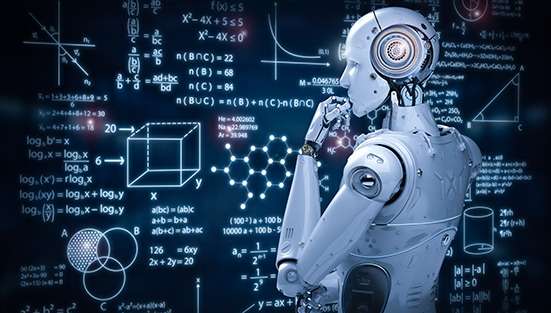
In conclusion, AI is no longer a futuristic concept but a practical and significant part of our daily lives. Its potential for innovation and efficiency is immense, and we can expect to see more groundbreaking applications of AI in the future. However, it is essential to also consider the ethical implications and ensure that AI is used for the betterment of society. As the famous quote by Stephen Hawking goes, "The rise of powerful AI will be either the best or the worst thing ever to happen to humanity. We do not yet know which."
